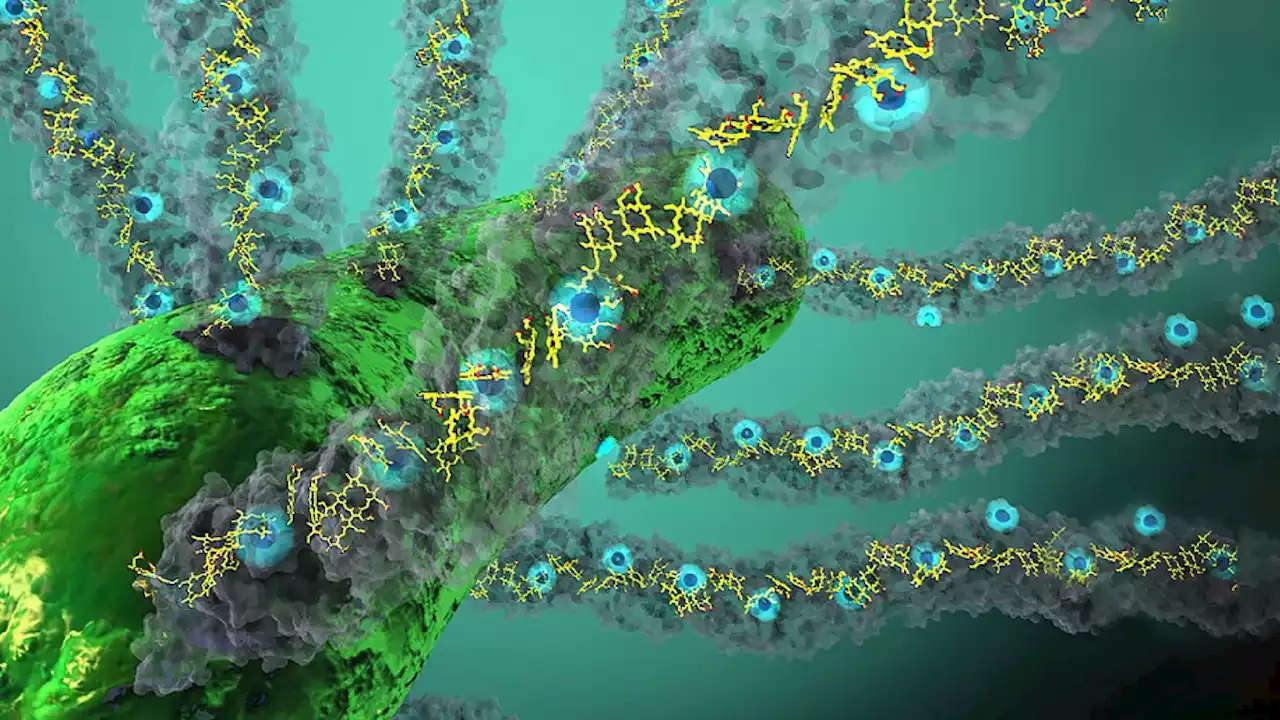Researcher are now looking to make the most of this new discovery.
Did you know that bacteria in the natural world breathe by exhaling excess electrons, causing an intrinsic electrical grid? In a new study, Yale University researchers discovered that light could supercharge this electronic activity within biofilm bacteria, yielding an up to a 100-fold increase in electrical conductivity,"The dramatic current increases in nanowires exposed to light show a stable and robust photocurrent that persists for hours," said senior author Nikhil Malvankar,...
They have therefore developed a way to respire by "breathing minerals” through tiny protein filaments called nanowires. The scientists found that when these types of bacteria were exposed to light, they produced a substantial and surprising increase in electrical current.In the new study, the research team led by postdoctoral researcher Jens Neu and graduate student Catharine Shipps found that this process was powered by a metal-containing protein known as cytochrome OmcS .
These aren’t the only bacteria found to have useful properties. In August of 2018, a team of microbiologists from Washington State Universityin Yellowstone National Park’s Heart Lake Geyser Basin that could “breathe” electricity by passing electrons to outside metals or minerals, using protruding wire-like hairs.
United States Latest News, United States Headlines
Similar News:You can also read news stories similar to this one that we have collected from other news sources.
 Scientists Thought a Bacteria Was Harmless – They Were WrongAn international study led by Singapore scientists discovers bacteria previously thought harmless can worsen existing lung disease. A team of international scientists has discovered that Neisseria — a genus of bacteria that lives in the human body – is not as harmless as previously thought. In fa
Scientists Thought a Bacteria Was Harmless – They Were WrongAn international study led by Singapore scientists discovers bacteria previously thought harmless can worsen existing lung disease. A team of international scientists has discovered that Neisseria — a genus of bacteria that lives in the human body – is not as harmless as previously thought. In fa
Read more »
 World's oldest heart is discovered in a 380-million-year-old fossilized fishScientists at Curtin University have discovered the world's oldest heart in a 380-million-year-old fossil of an ancient jawed fish.
World's oldest heart is discovered in a 380-million-year-old fossilized fishScientists at Curtin University have discovered the world's oldest heart in a 380-million-year-old fossil of an ancient jawed fish.
Read more »
 Scientists claim nanogenerators could produce significant electricity from sea wavesA group of researchers from China has found a way to use static energy to boost the power produced by wave energy. The invention could finally make the technology viable and efficient.
Scientists claim nanogenerators could produce significant electricity from sea wavesA group of researchers from China has found a way to use static energy to boost the power produced by wave energy. The invention could finally make the technology viable and efficient.
Read more »
 Adnan Syed case: 'Serial' podcast subject's conviction should be vacated, prosecutors sayAdnan Syed was the subject of the popular podcast 'Serial,' which profiles various murders around the country and shed light on the lack of DNA testing that was used in his case.
Adnan Syed case: 'Serial' podcast subject's conviction should be vacated, prosecutors sayAdnan Syed was the subject of the popular podcast 'Serial,' which profiles various murders around the country and shed light on the lack of DNA testing that was used in his case.
Read more »
 Scientists Discover Dinosaur Fossil That Seems Suspiciously Like a Dragon'It would have cast a great shadow over some quivering little dinosaur that wouldn't have heard it until it was too late.'
Scientists Discover Dinosaur Fossil That Seems Suspiciously Like a Dragon'It would have cast a great shadow over some quivering little dinosaur that wouldn't have heard it until it was too late.'
Read more »
